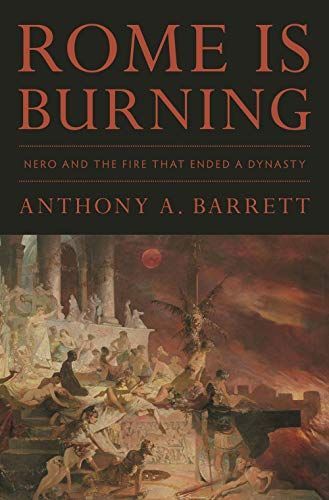
Rome Is Burning Nero and the Fire That Ended a Dynasty
"Nero became Emperor in A.D 54. On the evening of July 18, 64 A. D., it seems that a lamp was left unextinguished in a stall still heaped with piles of combustible material. Whether this was accidental or deliberate we cannot now determine, and normally it would not have led to anything that would have attracted even local attention. But there was a gusty wind that night, and the flickering flame was fanned onto the flammable wares. The ensuing fire quickly spread. Before the onlookers could absorb what was happening one of the most catastrophic disasters ever to be endured by Rome was already underway. It was a disaster that brought death and misery to thousands. In Nero and the Great Fire of Rome, Anthony Barrett draws on new textual interpretations and the latest archaeological evidence, to tell the story of this pivotal moment in Rome's history and its lasting significance. Barrett argues that the Great Fire, which destroyed much of the city, changed the course of Roman History. The fire led to the collapse of Nero's regime, and his disorderly exit brought an end to Rome's first imperial dynasty, transforming from thereto, the way that emperors were selected. It also led to the first systematic persecution of the Christians, who were blamed for the blaze. Barrett provides the first comprehensive study of this dramatic event, which remains a fascination of the public imagination, and continues to be a persistent theme in the art and literature of popular culture today"--